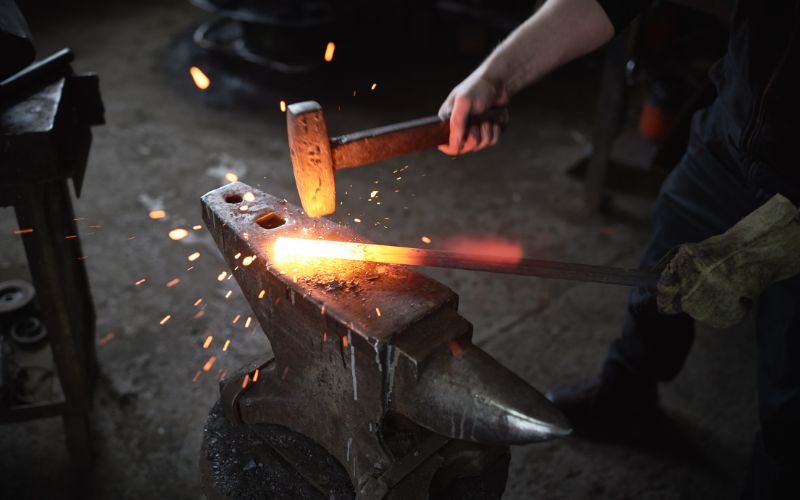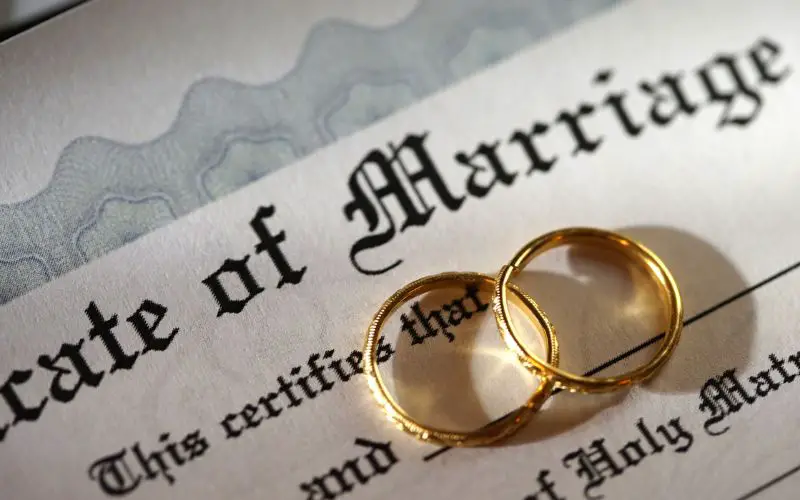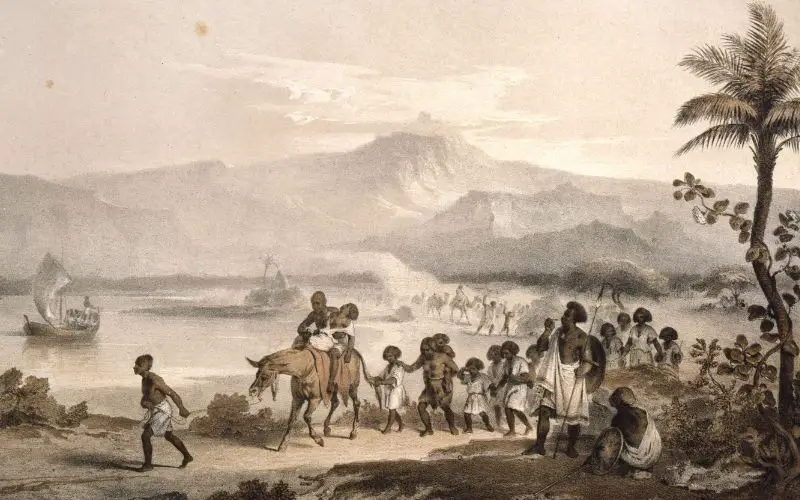Thankfully, we’ve come a long way when it comes to being able to identify ourselves and those around us. Today, most of us have a first, middle, and last name.
Some people have two middle names. Some people have two last names that have been hyphenated. Some even combine two last names at marriage to make an entirely new name.

Either way you slice it, since the earliest civilizations, humanity is better than we’ve ever been when it comes to naming. Whether it’s a consequence of an exploding population or not, there are plenty of benefits to being able to narrow down an identity.
As established as the process of naming is now, where did last names come from?
History of Naming
It gets to a point when looking at a family tree where you start to see names without middle names or with incomplete information.
Like full names, we’re lucky to live in a day and age where record keeping can be quite thorough.
Thanks to continuous improvements in technology, there is a surplus of information, the likes of which we’ve never seen in history.
Records weren’t even this good for the royal families. For much of human history, it didn’t get better than that.
Heck, there are plenty of high-ranking people who couldn’t even be consistent about how their name was spelled. That was a time that’s probably not as far away as one might imagine.
Still, it was a world that was much smaller than it is now.
Anyway, from the dawn of family history, names come to newborns as a single identifier. Those names were usually gender-specific or names that held special meaning.
For centuries, people weren’t really expected to leave the towns they were born in.
So, to have the same name as someone local wasn’t as big of a deal. Especially where everybody knows your name.
Too Many Johns
As the Middle Ages approached, and populations grew, names became a little more sticky a situation. Referring to someone as John of Middlesex or Thomas, son of Daniel, wasn’t working as well.
This period of time that’s also known as the dark ages started to do something that people just weren’t doing much of before this time; moving around.
People were looking for work and then there were the crusades. It was time to get to know ourselves a little better.
Surname Origins

Once a family decided they wanted something to bind them as one, something that went beyond clan name or location, the surname was born. Original surnames are derived from different sources.
For example, some families wanted to be attached to their profession and others to things like birthplace or geographical features.
When surnames first came into use, they weren’t necessarily inherited. John’s son, Henry, might not have taken his father’s surname of Smith.
Since he doesn’t work with metal, the son might not see the benefit of taking Smith as the last name. Instead, he calls himself Henry Miller because he works with grain.
There was a good bit of wiggle room in the beginning since there was no set standard. People had the option of picking something they felt represented them.
Here are the most common surnames in the US today:
- Smith
- Johnson
- Williams
- Brown
- Jones
Coming Up with a Family Name
Depending on how old you are, you might remember when the internet was so new that people needed to be sent instructions to try it for free. No one asked for AOL discs but they came nonetheless.
Everyone was dialing in from their CD-ROM so they could see what this World Wide Web thing was all about.
Within a few years, the internet no longer needed a phone line. Having the world at your fingertips is pure magic, so everyone was hooked.
Most children were fast adapters and quickly eclipsed their parent’s grasp of technology.
Last names swept across Europe in a similar way. It started with a family here and there.
Then, before they knew it, the whole town had decided to set themselves apart with a name. Suddenly, everyone is doing it and if you weren’t, you were basically ancient.
Surname meanings could be simple or complicated. So, how did they pick what family name to use?
Patronymic Names
One interesting way to create a last name out of what you’re already doing is by putting together patronymic names. Essentially, this technique creates a new name by using the father’s baptismal name.
How does a patronymic surname work? Say, for instance, your neighbors call you Thomas, son of Daniel.
You’re ready to go to another city full of people who don’t know Daniel. In this case, you need something new.
You’d likely gravitate towards MacDaniel, which means son of Daniel for those in Scotland. At home, you’re Thomas, son of Daniel. Out in the world, you’re Thomas MacDaniel.
Patronymic names were the convenient and logical step for many towards incorporating a new last name.
Descriptive Surnames
Medieval Europe had a lot going on and often hoards of people died for various reasons. If you’re a woman who lost her father in the Crusades, using a surname that points to being a son would be unbecoming.
You might be looking to improve your social standing. One way for a woman during Medieval times to do that would be through marriage.
A woman in this predicament might want to use descriptive names to stand out in order to make her known to eligible bachelors. So, she might want to pick a last name that would talk about attributes.
Instead of being Catherine the blonde, she might call herself Catherine White. Perhaps she’d prefer the last name that speaks of her character, like Catherine Wise or Goodchild.
Occupational Names
If a family didn’t feel any particular tie to a father figure or have attributes they wanted to promote, there are more choices.
Introducing occupational names. This surname option might be the most common.
Many cultures take pride in what they do to contribute to society, especially when it’s a field that requires a lot of time to master. You can tell how popular this was because the top spot of last names is Smith, a profession.
Sometimes it’s as obvious as Smith and sometimes you can tell the surname has derived from a job because of how it ends. For example, Baker, Farmer, Fisher, and even Chapman are all lines of work.
Topographic Names

Medieval Europeans lived in a time where so many first names were reused over and over that they hadn’t really hit a name renaissance quite yet. Last names were just another chore.
So, that might be why over half of all last names that came out of the United Kingdom were locative names.
Essentially, this is the type of the last name that small villages might have a majority of surnames based on. If you were the person given the task of putting together a list, research would be as simple as taking a walk.
Some of these surnames might ring a bell:
- Stone
- Wood
- Forest
- Hill
- Bush
Welcome to Family Names
Common surnames started circulating a thousand years ago and it took about half a millennium to become so widespread that it was expected. Around that same time is when generations started bringing names forward.
It was in the second half of the 13th century that the very first hereditary surname was recorded.
Less than 150 years later, three-fourths of the United Kingdom followed suit, and English surnames had become part of the culture. It became such a well-established expectation that King Henry VII decreed that all babies born would take their father’s surname.
Family names, also known as surnames or last names, were written into history.
Last Name Social Status
As with all trends, it didn’t take long to find a way to make having a last name or a particular surname something of a status symbol. Some last names were more desirable to have than others because of the family attached to them.
Some of the most sought-after family trees, therefore family names, to be associated with are of nobility or high-ranking families through an individual’s occupation.
Here are a few of the most famous European Surnames of yesteryear:
- Medici
- Guttenberg
- Rochefoucauld
A Woman’s Place

Alright, we know that in this part of history, men were the ones who were most noted in the records. Often a woman was only mentioned when she was born, married, and passed on.
Where did they fit in this new last name tradition?
During the Middle Ages, women married into a man’s family. This had been going on for a long time and would continue well into the Renaissance and beyond.
So, expecting a woman to take her husband’s last name was part of the process. It’s unlikely that taking a family’s last name would have been viewed as negative or otherwise demeaning.
During the evolution of descriptive surnames and attaching a surname meaning, women taking her husband’s name to pass on to their children made sense.
Culture Thrust Upon a People

A blight against humanity came in the form of slavery. As painful as it is to look back on, we must understand how important names are to descendants of former slaves.
Records are so poorly kept for people who were stolen from their homes and shipped across the sea that they can be hard to trace.
People began giving new names to the stolen individuals. The given name was often related to the slave owners.
It would be hard to keep a family tree under those circumstances. Slaves kept their first names, even if they were called something else later.
After emancipation, former slaves had the ability to choose their own last names. Freeman was a popular choice. Many of the emancipated went with familiar names.
As of today, here are the most common last names of the African American community:
- Williams
- Johnson
- Smith
- Brown
- Jones
All These Names
From a thousand years ago, when surnames began popping up to now, last names come out of nowhere. One day, a person was commonly referred to as a given name with their parents or town name following.
The next day, everyone has a last name. Sort of like the modern-day cell phone.
Since surnames derive in a variety of ways, it should be expected that people will continue to find ways to stand out from the crowd. We have women now who reject taking a husband’s last name upon marriage.
There are people who reject the last name of their father. Some couples create a whole new last name, be it Indian, Chinese, Nigerian, Mexican, or English surnames by origin or original.
Whether your family lived with a social status you love or fell in love with small villages in another part of the world you’d like to associate with, the last name is up to you.


